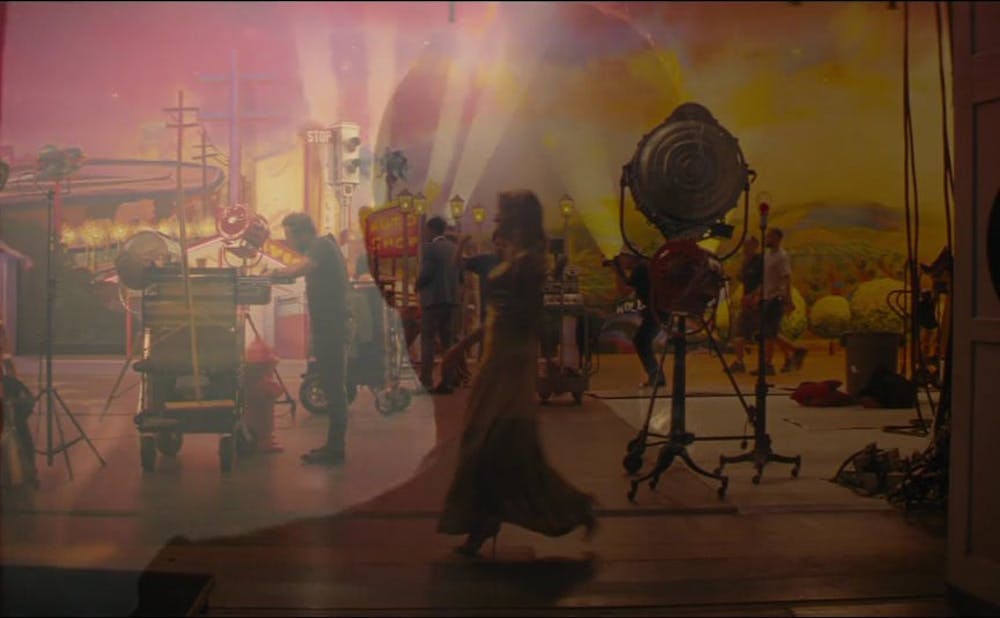SPOILERS AHEAD:
To all the folks out there saddened by the bittersweet ending of Damien Chazelle’s “La La Land,” which released last month, don’t say you weren’t warned.
Though “La La Land” sells itself as a whirlwind romance with Ryan Gosling and Emma Stone playing an updated (if in gadgetry and location only) Fred and Ginger, the true sentiment behind this gorgeous, sprawling film is revealed in the first lyrics of the opening number, “Another Day of Sun.” The piece’s never-seen-again-star sings, “I think about that day I left him at a Greyhound station west of Santa Fé. We were seventeen, but he was sweet and it was true. Still I did what I had to do. 'Cause I just knew.” Throughout the song (and the movie) the initial warning gets lost in a heartfelt love letter to the titular “La La Land,” Los Angeles, obviously, and you are completely filled with a sense of wonder and hope and possibility. The Golden Age sensibility of “A Lovely Night,” the sensitive throwback crowded-room piano riff “Mia and Sebastian’s Theme” and the romantic ballad “City of Stars” all point to one end result. Love will prevail!
Except, it’s not the love you might expect. Of course, the majority of the film is filled with the romantic trappings of our favorite ‘50s musicals (everyone has those, right?), and by the time Gosling’s Seb has “made it” as the pianist in an impure, modern take on a jazz band, Stone’s Mia is giving up on her dream as an actor just in time for Seb to force her into a massive audition (which she, of course, gets). This is where the throwback stops, and a more practical, if difficult, reality sets in. Mia gets the role and leaves for Paris, exchanging a heartfelt “I’ll always love you” with Seb, and five years later snags a drink, as an established star, from the same Warner Brother’s coffee shop in which she once toiled away as a barista. The catch is, just like Mr. (if you can call him that, he’s 31) Chazelle’s breakthrough film “Whiplash,” the dream of creative success comes at a cost. In this case, the sacrifice is Seb, who with no romantic life to mirror Mia’s happy home one, has finally succeeded with his ever-elusive jazz club. By the time that they lock eyes in that club, with Mia’s husband on her arm and Seb on the keys, we’re stomping our feet and wishing that they had just had the gall to stay together.
What follows, though, is where “La La Land” makes its mark as a masterpiece. During a reprise of “Mia & Seb’s theme,” we see a breathtakingly beautiful montage of the life that they could’ve had together - as Vulture put it, “a wordless dream ballet that washes over them as Sebastian plays ‘their’ song on the piano.” It’s happy, it’s luscious, and it’s wistful. The catch is that it’s also without the success that they’ve come to during the film’s technicolor reality. Mia is a moderately successful actress (nowhere near the head turner she could’ve been) and Seb’s club is nowhere to be found. Their love is wonderful, but you get the sense that it isn’t enough to sustain them if success remains out of reach.
They are in “La La Land” not to find a soulmate but to pour their soul into their work, and the movie’s denouement makes it obvious which takes precedent. This struck home especially hard for me as I jump into the void of post-graduate life, where career aspirations and creative ambition will likely be furthered at the expense of romance and comfortable prospects, at least in the short term. It’s a hard pill to swallow, obviously—giving up something wonderfully tangible for a dream that may never come to fruition is not a no-brainer. “La La Land” reminds you that the greats do it. It certainly gives you the sense that Chazelle, a Harvard graduate, did.
With the best movie musical to come along in many years, Damien Chazelle has blasted himself onto my list of favorite directors alongside Linklater and Allen, wrapping up their realism and naturalistic style inside his own brand of eager, fantastical escapism. Yes, the cinematography, writing and performances have been rightfully praised en route to Oscar front runner status. But more impressively, Chazelle has piloted something as dreamlike as “La La Land” into telling an all too real and important story about dreams and the sacrifices we make for them - a story that’s especially poignant for us as we prepare to graduate.
Get The Chronicle straight to your inbox
Signup for our weekly newsletter. Cancel at any time.

